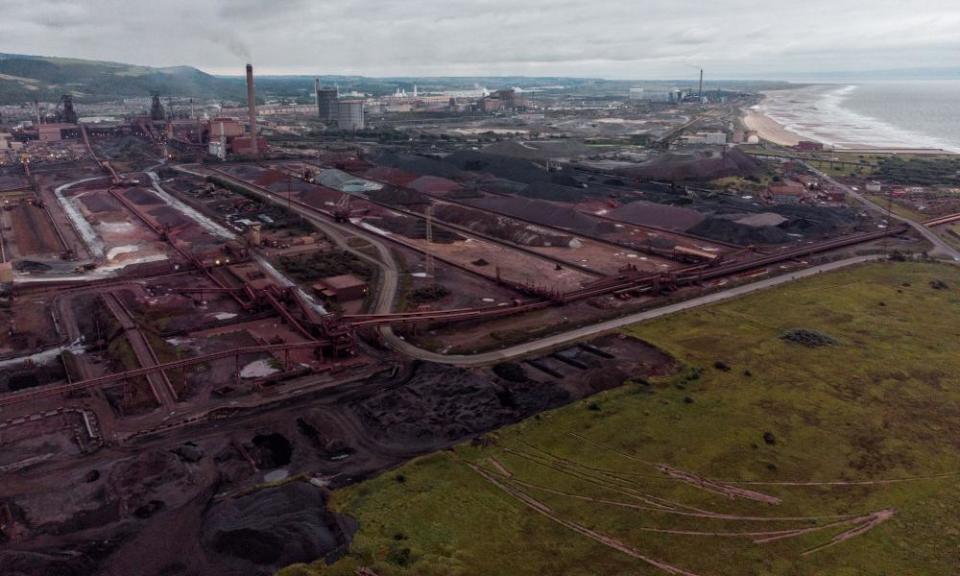Port Talbot steelworks owner reports £347m loss despite £1bn funding

The owner of Port Talbot steelworks crashed to a £347m annual loss as the pandemic hit demand, but insisted its finances are healthier after its parent, Tata, pumped in almost £1bn of equity.
Losses at Tata Steel UK in the year to the end of March improved from £654m a year earlier but underlined the struggles of Britain’s steel industry.
Its Indian parent, Tata, which also owns Jaguar Land Rover and Tetley Tea, is still in talks with the government about the future of the vast south Wales steelworks.
The funding injection in June was crucial to meet Tata’s need for cash for its day-to-day operations, as it suffered from a 20% slump in demand between April and June 2020, near the start of the pandemic.
The global steel market has since bounced back as factories and construction have tried to make up for lost time.
However, higher prices are not likely to feed through to Tata’s earnings for months until earlier contracts lapse, and Port Talbot has also been affected by the slow recovery in output from the automotive industry, which has slowed production because of persistent shortages of computer chips.
Revenues from operations fell by 8% to £1.98bn, although liquid steel output from the plant only fell by 100,000 tonnes year-on-year to 3.4m tonnes.
The accounts also showed that Tata Steel UK cut employee numbers by about 400 during the year, to 8,000. It claimed £25m from the UK government’s coronavirus job retention scheme, which paid the wages of furloughed workers.
Tata is still using the furlough scheme, but it is not thought that it will face similar problems to its rival, Liberty Steel, which could face a cash crunch when support is withdrawn at the end of this month.
The Guardian revealed last week that Liberty was still reliant on the furlough scheme to support the wages of 70% of its workers in the last month, raising concerns over further job losses.
The equity injection for Tata Steel UK meant that its directors removed a warning given in 2020 that its ability to continue as a going concern was at risk. Tata has split the UK operations from its sister plant in the Netherlands.
The Tata accounts also show the Port Talbot plant’s difficulties accessing working capital, the cash needed to run day-to-day operations.
In 2021 Tata Steel UK was forced to lean on loans from other Tata companies worth £200m and £230m to cover its working capital needs and to buy carbon credits under EU emissions rules for large polluters. The company is in “constructive discussions” with the UK government over longer-term support to lower its emissions, a key question for the sector.
The intercompany loans were consolidated in the equity injection, although Tata Steel UK also has a newly negotiated £200m credit line with a number of banks, plus an arrangement to sell outstanding invoices worth up to £400m to a bank buyer.
A Tata Steel spokesperson said the equity financing and the new credit line “strengthened the European balance sheet and reduced the group’s consolidated net debt”.
Tata UK has also struggled with disruption from Brexit. It noted that its transport costs have increased by 15% because of Brexit, and a shortage of lorries and drivers. It has also been forced to pay tariffs on some products exported to the EU.

 Yahoo Finance
Yahoo Finance 